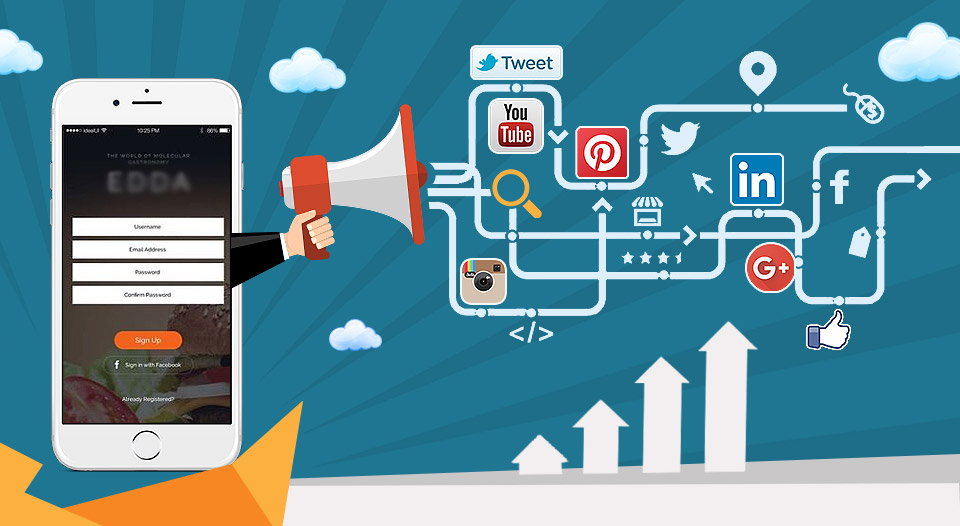
Mobile App Marketing and Promotion Techniques
By Udit Agarwal

Mobile app marketing and promotion are essential for successfully launching and maintaining a mobile application. With millions of apps available in various app stores, standing out and reaching your target audience requires a well-thought-out marketing strategy. In this guide, we’ll explore multiple mobile app marketing and promotion techniques that can help your app gain visibility, attract users, and achieve long-term success.
1. Pre-Launch Preparation: Building Anticipation
Before your app’s official launch, building anticipation and excitement among potential users is crucial. This phase involves creating a buzz and letting people know what to expect. Here’s how:
Market Research:
Understand your target audience’s preferences, needs, and pain points. Conduct competitor research to identify gaps in the market that your app can fill.
App Store Optimization (ASO):
Optimize your app’s name, description, keywords, and visuals (icons, screenshots, and videos) in app stores to enhance discoverability in search results through ASO.
Landing Page and Teaser Campaign:
Create a compelling landing page for your app with an email signup option for interested users. Run teaser campaigns on social media and other channels to create excitement.
Beta Testing:
Invite a group of users to participate in beta testing. Their feedback can help you identify and fix issues before the official launch.
2. Official Launch: Getting the Word Out
Once your app is ready for launch, it’s time to promote it across various channels to reach a wider audience:
Press Release:
Create a press release highlighting your app’s features and benefits. Distribute it to tech blogs, news outlets, and relevant websites to generate media coverage.
Social Media Marketing:
Leverage platforms like Facebook, Twitter, Instagram, and LinkedIn to create a solid social media presence. Share engaging content, updates, and teasers to attract users.
Influencer Marketing:
Collaborate with influencers or bloggers in your app’s niche to review and promote your app. Their recommendations can have a significant impact on user acquisition.
Email Marketing:
Utilize your email list from the pre-launch phase to notify subscribers about your app’s official release. Offer exclusive access or discounts to incentivize downloads.
App Review Sites:
Submit your app to popular app review websites and encourage users to leave positive reviews. Positive reviews can improve your app’s credibility and rankings.
Paid Advertising:
Invest in paid advertising on platforms like Google Ads and Facebook Ads to reach a broader audience. Target specific demographics and interests to maximize ROI.
3. Post-Launch Growth: User Engagement and Retention
After the initial launch, your focus should shift towards user engagement and retention. These strategies help you maintain a healthy user base and increase user loyalty:
App Updates:
Continuously improve your app by releasing updates with new features, bug fixes, and performance enhancements. Notify users about updates to keep them engaged.
User Feedback:
Encourage users to provide feedback through in-app surveys or feedback forms. Act on this feedback to address user concerns and enhance the user experience.
Push Notifications:
Send personalized and relevant push notifications to keep users informed and engaged. Be mindful not to overdo it to avoid user frustration.
Loyalty Programs:
Implement loyalty programs, rewards, or discounts for loyal users. Incentivize them to continue using your app and refer it to others.
Referral Programs:
Encourage users to refer friends and family to your app in exchange for rewards or discounts. Word-of-mouth recommendations can be powerful.

4. App Store Ratings and Reviews:
Positive app store ratings and reviews are crucial for attracting new users and retaining existing ones. Here’s how to manage them effectively:
Monitor Reviews:
Regularly monitor and promptly respond to user reviews, addressing positive and negative feedback. Show users that you value their opinions.
Request Reviews:
Politely prompt satisfied users to leave reviews on the app store. Use in-app prompts strategically, such as after a successful transaction or positive interaction.
Address Negative Feedback:
Address negative reviews professionally and seek solutions to users’ issues. Turning a negative experience into a positive one can enhance your app’s reputation.
5. Content Marketing: Building Authority
Content marketing helps establish your app as an authority in its niche, attracting organic traffic and users. Consider these content strategies:
Blog Posts:
Maintain a blog on your website or within the app. Create informative and engaging articles related to your app’s niche. Share these articles on social media and through email newsletters.
Video Tutorials:
Create video tutorials that demonstrate how to use your app’s features. Post them on YouTube and embed them on your website or app.
Webinars and Podcasts:
Host webinars or podcasts featuring industry experts or discussing relevant topics. It can help you reach a broader audience and establish credibility.
Guest Posts:
Contribute guest posts to industry-related websites and publications. Include links to your app’s website or store page for increased visibility.